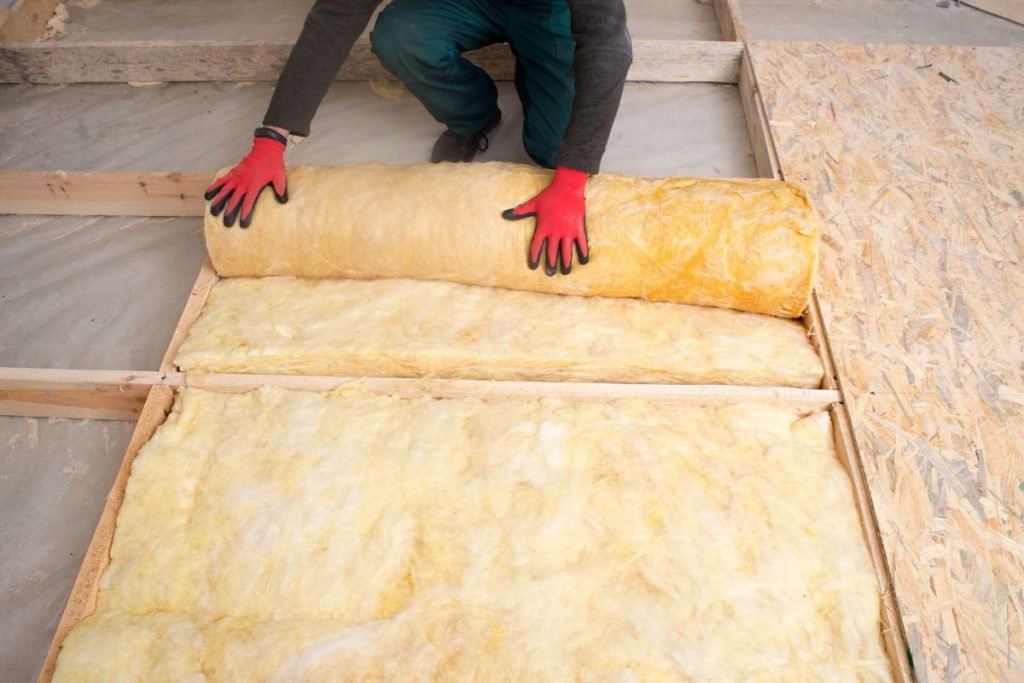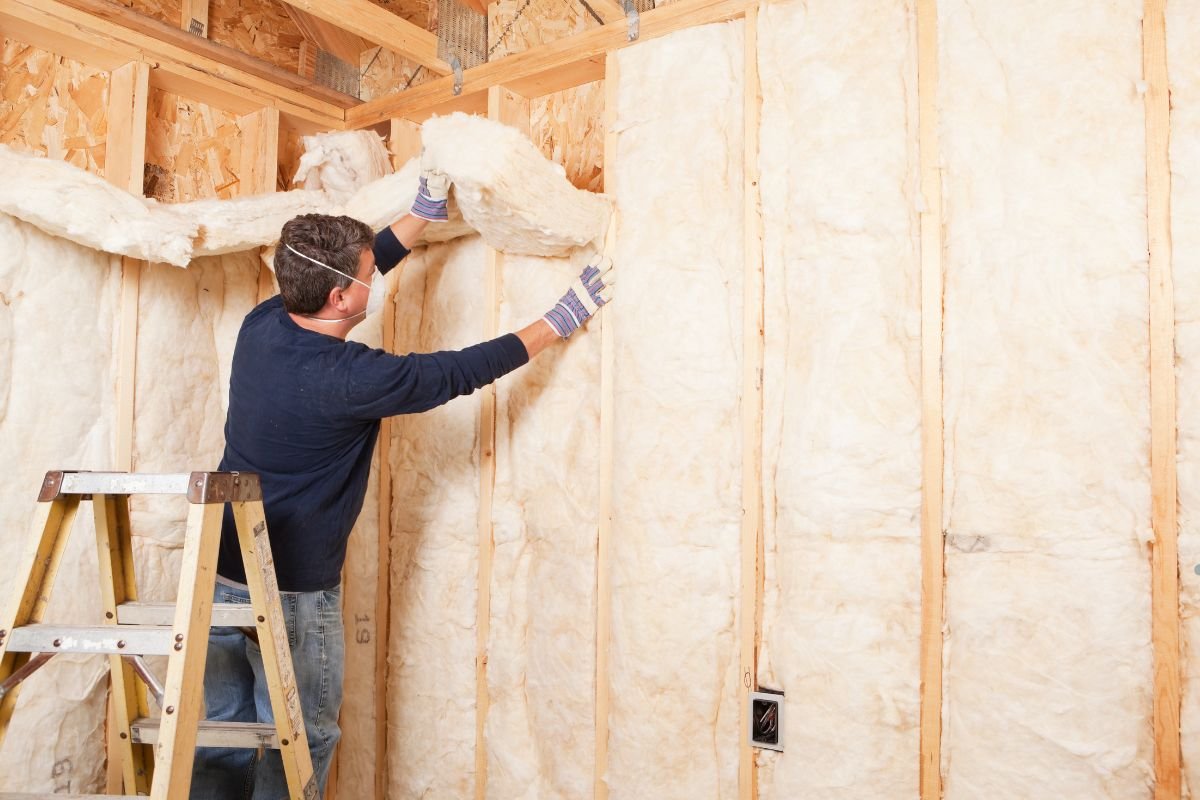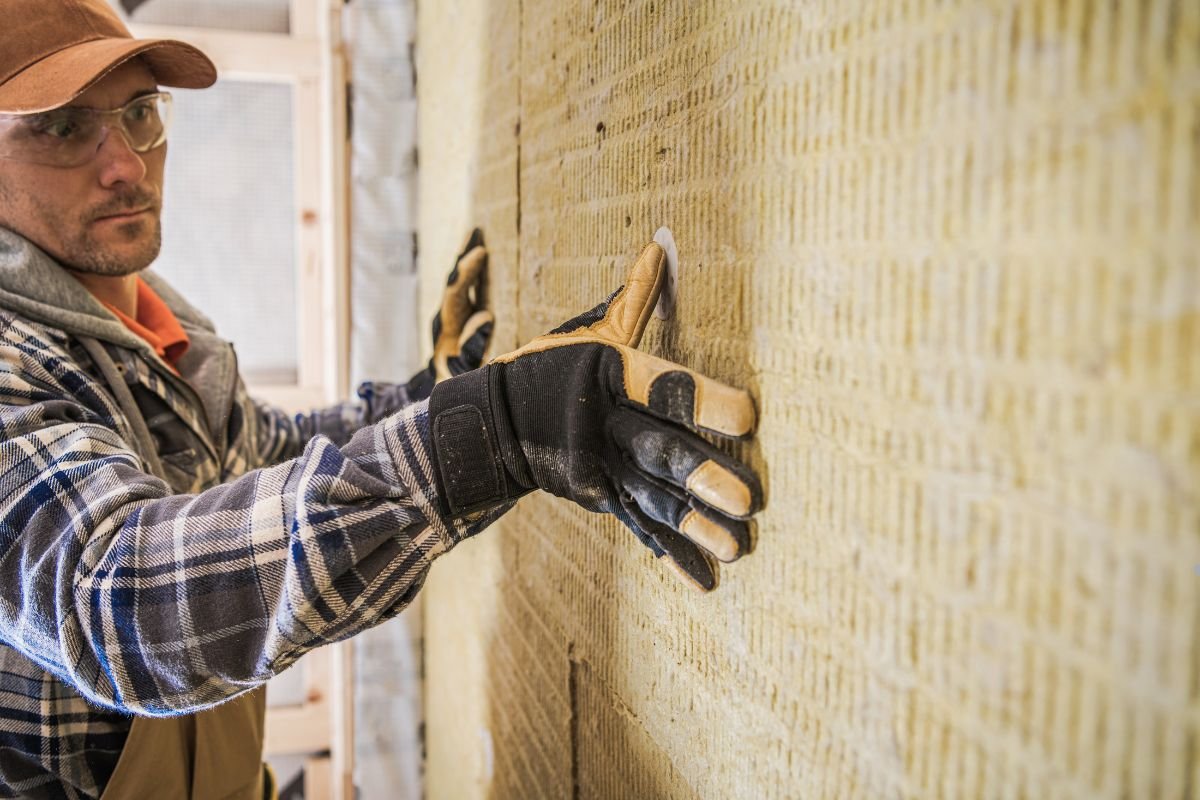
Good insulation is vital for the environment because it dramatically reduces energy consumption, which in turn lowers greenhouse gas emissions, conserves natural resources, and improves indoor air quality. By creating a more energy-efficient home, you’re not only saving money on your utility bills but also contributing to a more sustainable future.
Insulation is more than just a way to keep your home comfortable; it’s a critical component of a healthy planet. Let’s dive into the many environmental advantages of making sure your home is properly insulated.
How Insulation Reduces Energy Consumption
One of the primary ways insulation benefits the environment is by reducing energy consumption. Homes without adequate insulation require more energy to maintain a comfortable temperature. During the winter, heat escapes through poorly insulated walls, roofs, and floors, forcing your heating system to work harder. Conversely, in the summer, heat penetrates the home, causing your air conditioner to overwork. This constant struggle to regulate temperature leads to increased energy usage and higher utility bills.
Explore Our Services to find the perfect insulation solution for your home. Enhance comfort, save energy, and go green today!
Reducing Heating Demand

Proper insulation creates a barrier that minimizes heat loss during colder months. By reducing the amount of heat that escapes, your heating system doesn’t have to work as hard or as often, leading to significant energy savings. This is especially important in regions with harsh winters.
Reducing Cooling Demand
Similarly, good insulation keeps unwanted heat out during the summer. By reducing the amount of heat that enters your home, your air conditioning system can operate more efficiently, consuming less energy and keeping your home cooler.
Improve your home’s comfort and energy efficiency with our expert insulation services! Lower your energy bills and stay comfortable year-round. Call us today for a free consultation and start saving!
Lowering Greenhouse Gas Emissions
The reduced energy consumption directly translates into lower greenhouse gas emissions. Power plants, which often rely on fossil fuels, are a major source of carbon dioxide and other harmful pollutants. When you use less energy at home, these power plants don’t need to burn as much fuel, resulting in fewer emissions.
Reduced Fossil Fuel Usage
By reducing the demand for energy, we decrease our reliance on fossil fuels. This is crucial in the fight against climate change and helps to preserve our planet’s natural resources.
Impact on Carbon Footprint
A well-insulated home significantly reduces your carbon footprint. Your carbon footprint is the total amount of greenhouse gases generated by your actions. By minimizing energy consumption through good insulation, you actively reduce your contribution to climate change.
Conserving Natural Resources
Decreased energy demand has a ripple effect, leading to the conservation of natural resources. When we use less energy, there is less need to extract and process these resources, reducing the environmental impact of energy production.
Less Demand for Energy Production
Lower energy demand translates to less drilling, mining, and transportation of fossil fuels. This protects fragile ecosystems and reduces the risk of environmental disasters.
Sustainable Insulation Materials
Choosing sustainable insulation materials further enhances the environmental benefits. Options like recycled cellulose, sheep’s wool, and cotton insulation are made from renewable or recycled resources, reducing the environmental impact of insulation production.
Insulation is essential for maintaining a comfortable and energy-efficient home. It acts as a barrier, reducing heat transfer to keep your home warm in winter and cool in summer. This not only enhances comfort but also lowers energy bills and reduces your carbon footprint. Discover the key reasons why insulation is crucial for US homeowners in our comprehensive guide.
Improving Indoor Air Quality
Good insulation also contributes to improved indoor air quality. By sealing gaps and cracks, insulation helps prevent air leakage, which can bring in pollutants, allergens, and other harmful substances.
Reduced Air Leakage
Air leakage can lead to drafts and inconsistent temperatures, as well as the infiltration of dust, pollen, and other allergens. Proper insulation minimizes these problems, creating a healthier indoor environment.
Preventing Mold and Mildew
Insulation can also help control moisture levels in your home. Excessive moisture can lead to the growth of mold and mildew, which can cause respiratory problems and other health issues. By maintaining proper humidity levels, insulation helps prevent these problems.
Good insulation saves energy and helps protect the planet! Reduce your carbon footprint while lowering your energy bills. Call us now for expert insulation services and make your home more eco-friendly and efficient!
Economic Benefits of Good Insulation

While the environmental benefits are significant, it’s also important to note the economic advantages of good insulation.
Lower Energy Bills
One of the most immediate benefits of good insulation is lower energy bills. By reducing energy consumption, you can save a significant amount of money each month.
Increased Home Value
Good insulation can also increase the value of your home. Energy-efficient homes are more attractive to buyers, and proper insulation can be a selling point that sets your home apart from the competition.
Choosing the Right Insulation
Selecting the right insulation is crucial for maximizing its environmental and economic benefits.
Types of Insulation Materials
There are various types of insulation materials available, each with its own advantages and disadvantages. Common options include fiberglass, spray foam, cellulose, and rigid foam.
Considering R-Value and Climate Zone
The R-value of insulation measures its resistance to heat flow. Higher R-values provide better insulation. It’s important to choose the right R-value for your climate zone to ensure optimal energy efficiency.
Insulation and Government Incentives/Rebates (USA)
Many government incentives and rebates are available to homeowners who upgrade their insulation.
Federal Tax Credits
The federal government offers tax credits for energy-efficient home improvements, including insulation upgrades.
State and Local Programs
In addition to federal incentives, many states and local governments offer their own programs to encourage energy efficiency.
Conclusion
Good insulation is a win-win for both your wallet and the environment. By reducing energy consumption, lowering greenhouse gas emissions, conserving natural resources, and improving indoor air quality, insulation plays a vital role in creating a more sustainable future. By investing in better insulation, you’re not just making your home more comfortable; you’re contributing to a healthier planet. [Call Us] today and take the first step towards a more energy-efficient and environmentally friendly home.
FAQs (Frequently Asked Questions)
How does insulation help the environment?
Insulation reduces energy consumption, which lowers greenhouse gas emissions, conserves natural resources, and improves indoor air quality.
What is R-value and why is it important?
R-value measures an insulation’s resistance to heat flow. Higher R-values mean better insulation and greater energy savings.
What are some eco-friendly insulation options?
Eco-friendly options include recycled cellulose, sheep’s wool, and cotton insulation.
How much money can I save with better insulation?
Savings vary depending on your climate, home size, and current insulation levels, but you can expect to save a significant amount on your energy bills.
Where can I find rebates for insulation upgrades?
Check with your state and local government agencies, as well as utility companies, for available rebates and incentives.
Enhance your home’s comfort and energy efficiency with our expert insulation services! Lower your energy bills and reduce your carbon footprint. Contact us today for a free consultation and get started on a more sustainable home!
